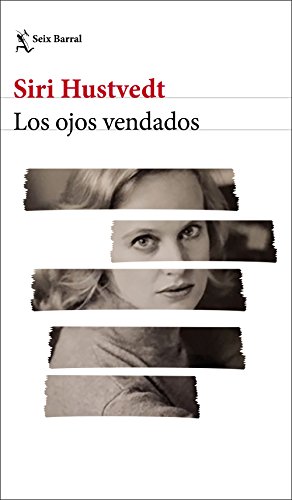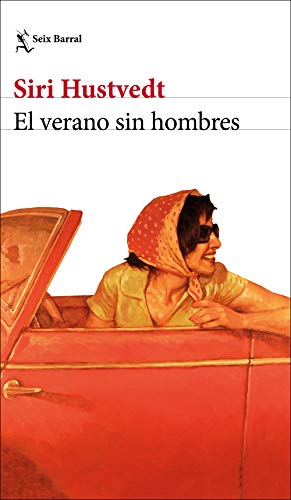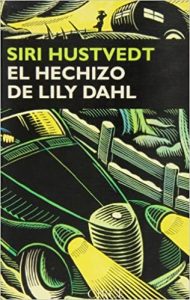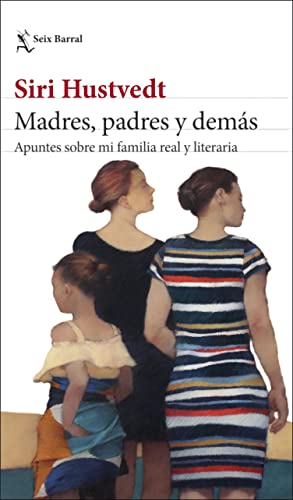The truth is that living with Paul auster can become a crash course in literary learning in all sorts of resources and general craft (and it has nothing to do with the roll that Siri Hustvedt be a woman. I would say the same of any other person who, living with the genius Auster, eventually turned towards literature as well. Because I say that some tip or recommendation would pass him).
So, be that as it may, and perhaps with that maxim of the student who surpasses the teacher, Siri Hustvedt he was able to find in his partner that teacher with whom to do his doctorate and exploit his inspiration without leaving home.
(note) I INSIST, AS A RESULT OF THE COMMENTS THAT HAVE BEEN POURING (I WOULD ALMOST SAY VOMITING) IN THIS POST THAT IF MACHIST HERE MACHIST THERE I REPEAT THAT: I would point in the same direction about a budding creator who could learn all kinds of resources living with Agatha Christie or with Dolores Redondo. And that's enough with the bloody machismo... (end note)
Undoubtedly, then there is the ability, the ingenuity, the gifts ... the old dilemma about the necessary balance between work and ability, about what corresponds to effort and what emanates from the gift.
Beyond all this, it is undeniable that the luck to make a first place in the publishing world was already given to Siri. If later it has been able to reach the whole world, being translated into a multitude of languages, there is no longer a doubt that Siri is a great writer.
Because, since Blindfolded assaulted the libraries of half the world, back in 1992, Siri has managed to create that very personal atmosphere of the writer who seeks in literature a channel towards humanistics, the relationship between humans, the strange mixture between her own dreams, social conventions and the ultimate need to explore for the fullest realization.
In Siri's narrative technique we find in part that atomized narrative that Auster also uses on many occasions, that intention of composing the whole from the sum of the parts, savoring each of those aspects that come together in the common course of the plot.
However, in my opinion Siri Hustvedt prints a greater rhythm to her novels, trying to give the most precise brushstrokes oriented to greater dynamism, to the story of a world composed of the notion of brilliant characters that roam through very different profiles to compose the story. fullest canvas possible.
3 recommended books by Siri Hustvedt
Blindfolded
New York is the city of cities. His character is an amalgam of characters. In its social physiognomy you can find everything and for everyone.
Americans themselves sometimes deny that great city given over to universality, where everything and everyone fits ... So, for a writer like Siri (as well as for so many other creators), propose a story of characters, of human interaction in this capital world of diversity augurs at least an immense documentary and plot fund.
Among the famous skyscrapers and their diverse neighborhoods we find Iris Vegan, a Literature student at that University that has become the border between Manhattan and Harlem. She herself also lives on that border, interested in meeting each other from here and there.
The novel is separated into four chapters that present different moments in which the character of Iris is equipping herself in prominence with others, perhaps in an intention to highlight what each of these other characters represent, be it cruelty, pleasure , marginalization or any other aspect, always from the perspective of survival in the shadow of the great skyscrapers.
The summer without men
Mia Fredricksen believed she was living happily with Boris Izcovich. Years of fruitful marriage in which they had fertilized routines and inertia, the kind that bear fruit in accommodation and closeness.
So when Boris decides to put a hiatus in their shared life, Mia explodes with concern about the future without him. However, after the storm, calm appears and when Mia discovers that what is really happening is that she is afraid to run away from herself, from that changing reflection in the mirror.
But once the reality is understood, he can finally embark on a new journey with as many fears as hopes. Mia ends up returning to Bonden, the place before Boris. And there Mia finds the spirit of her youth and fills it with the new sensations of the most rabid maturity.
And it is there, in Bonden, where Mia discovers that living as a couple is sometimes shutting herself off from the world, from other realities, from risks and insecurities but also from life in essence.
A novel that passes for being a feminist because of Mia's own condition and state, but beyond that, far above that is human interaction, the strange feeling of recovering a life from the night of youth, skipping years and later years, and also the discovery of young people seen from someone who needs to be so again.
Lily Dahl's spell
The most intense of passions is physical love. And Lily Dahl succumbs to that raging sensation of desire as thirst, as something physiological that in turn is fundamental to life.
The most remote of cells feeds on the water of love, and no better source than that of another person who appears as a fountain full of invitations to a fresh and transparent bath of life.
The only impediment to this thirst of the soul is morality, established as if love needed supply limitations to ensure a natural and organized flow of it, when love really overflows in uncontrollable and inexhaustible springs.
From there the reason, social coexistence deals with mythologizing that water, making it strange, remote, unavailable to anyone who really discovers the only salvation from human thirst in the moral.
Lily Dahl is that character who explores and makes us consider the adventure of love as a necessary experimentation. The path to the source that quenches thirst, the moment when you finally satisfy yourself ...
Other recommended books by Siri Hustvedt
Mothers, fathers and others: Notes on my real and literary family
Nothing more honorable than introspection in that great little story that takes place from the first spark that awakens our first cell to the last air that escapes from our body. Someone will take care before and after of telling what we are not, of fictionalizing, mythologizing and recomposing. From the wishes of the parents who await us to the eulogy of those who gather at the farewell. In the meantime, only we can decide to tell our truth to make essential literature.
Feminist philosophy and family memories go hand in hand in this new collection of essays by Siri Hustvedt, a masterful exploration of how many of the experiences we take for granted and that define us as human beings are not as fixed as we think, especially relationships. family or between genders, abuses of power or the influence of the environment on who we are, delving into her own personal memory, her formative years and her experience as a writer.
Hustvedt once again displays an extraordinary gift for communication and interdisciplinary knowledge in this volume that moves effortlessly between the stories of his mother, grandmother and daughter but also those of his "artistic mothers", Jane Austen. , Emily Brontë and Louise Bourgeois, and from there to broader concepts, such as the experience of motherhood in a culture shaped by misogyny and fantasies of parental authority. It is ultimately a scholar's journey into pressing questions about family love and hate, human prejudice and cruelty, and the transformative power of art.





Lack of documentation, perhaps, bathed in a machismo yet to be recognized. I don't think there is such a teacher-student relationship. In any interview they leave evidence of this, much more with their works. They have stated that they are 'in-house editors' of each other's writings. Partners in life and profession, I think, would be more accurate.
As always, you are able to detect machismo without knowing the person. But I cannot point to the fact that the person who was previously more famous, within the couple, has served as a stimulus or lever for the other person... everything is very normal.
Auster already triumphed in the late eighties and Hustvedt entered the 90s. They married in 1982, but it could not have had anything to do with the fact that she reached prose with the most mature path, it was only because of her quality as a writer. There are writers and writers who never arrive and who, perhaps with a better shadow, could have done better. That is very clear.
I insist that I would say the same if a writer emerged after pairing up with Dolores Redondo, For example. But calling it macho is the most comfortable and cool way to place oneself on the good side of things just because; in the closure actually because also.
From the beginning a stale sexist analysis of the author's works because she "would not have existed without the teacher" even in the XNUMXst century with these very sexist phrases!! Tiredness and repulsion has such obsolete macho speeches.
* macho dandruff that permeates everything
Hello. What a hackneyed and macho way to see Siri Hustvedt's writing that he wrote before meeting Mr. Paul Auster, and their careers have had a very similar course. Sad that you do not get rid of that macho dandruff that proclaims everything. Neither Siri Hustvedt is the student, nor Paul Auster the teacher. How difficult is it to understand that women are valid and grow by themselves, without needing to be in the shadow of anyone? Siri Hustvedt certainly doesn't need her husband's push to shine. All the best